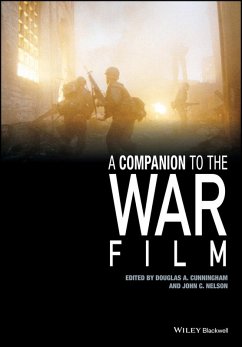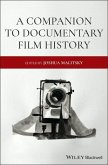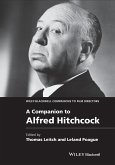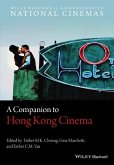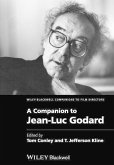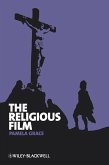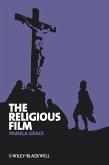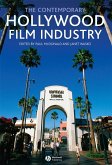A Companion to the War Film contains 27 original essays that examine all aspects of the genre, from the traditional war film, to the new global nature of conflicts, and the diverse formats that war stories assume in today's digital culture.
_ Includes new works from experienced and emerging scholars that expand the scope of the genre by applying fresh theoretical approaches and archival resources to the study of the war film
_ Moves beyond the limited confines of "the combat film" to cover home-front films, international and foreign language films, and a range of conflicts and time periods
_ Addresses complex questions of gender, race, forced internment, international terrorism, and war protest in films such as Full Metal Jacket, Good Kill, Grace is Gone, Gran Torino, The Messenger, Snow Falling on Cedars, So Proudly We Hail, Tae Guk Gi: The Brotherhood of War, Tender Comrade, and Zero Dark Thirty
_ Provides a nuanced vision of war film that brings the genre firmly into the 21st Century and points the way for exciting future scholarship
Hinweis: Dieser Artikel kann nur an eine deutsche Lieferadresse ausgeliefert werden.
_ Includes new works from experienced and emerging scholars that expand the scope of the genre by applying fresh theoretical approaches and archival resources to the study of the war film
_ Moves beyond the limited confines of "the combat film" to cover home-front films, international and foreign language films, and a range of conflicts and time periods
_ Addresses complex questions of gender, race, forced internment, international terrorism, and war protest in films such as Full Metal Jacket, Good Kill, Grace is Gone, Gran Torino, The Messenger, Snow Falling on Cedars, So Proudly We Hail, Tae Guk Gi: The Brotherhood of War, Tender Comrade, and Zero Dark Thirty
_ Provides a nuanced vision of war film that brings the genre firmly into the 21st Century and points the way for exciting future scholarship
Hinweis: Dieser Artikel kann nur an eine deutsche Lieferadresse ausgeliefert werden.

